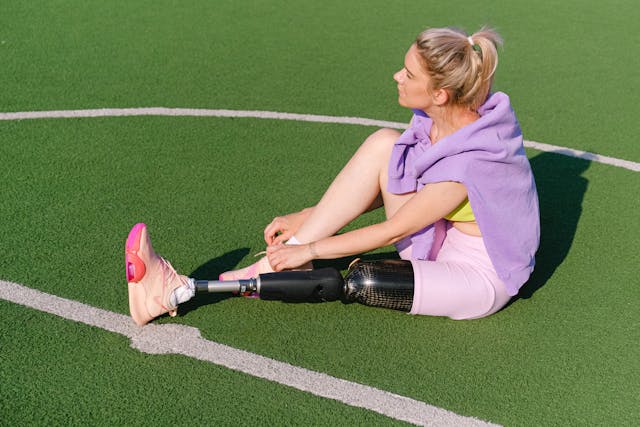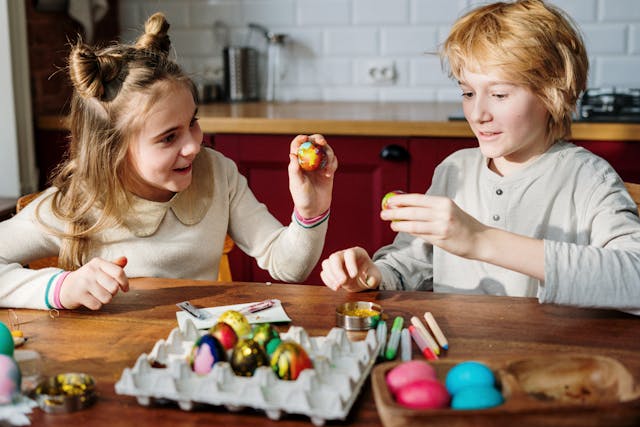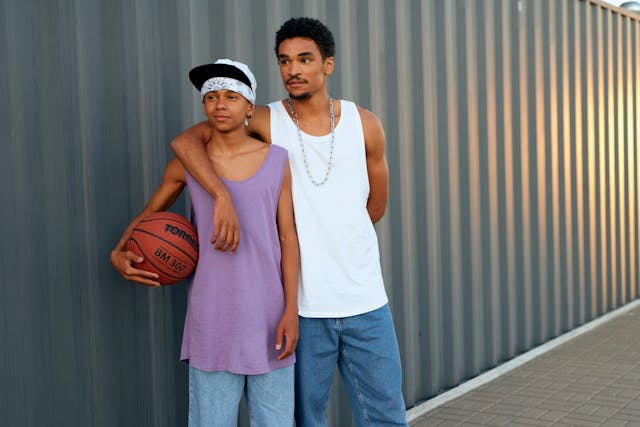When a child has a prosthetic limb, it doesn’t just affect them—it impacts the entire family, including their siblings. Brothers and sisters may have questions, concerns, or even mixed emotions about their sibling’s prosthetic limb. Some may feel protective and want to help, while others may feel unsure about how to interact.
Helping siblings understand and support their brother or sister with a prosthetic limb is essential for creating a loving, inclusive, and positive family environment. When siblings learn how to communicate, support, and play together, it strengthens their bond and builds confidence, empathy, and acceptance for everyone involved.
In this guide, we’ll explore practical ways to educate siblings, encourage supportive relationships, and handle emotions in a way that benefits the entire family.
Educating Siblings About Prosthetic Limbs
Children are naturally curious, and when they see their sibling with a prosthetic limb, they will ask questions. Instead of avoiding the topic, parents should provide clear, age-appropriate explanations that help siblings understand.
Explaining What a Prosthetic Limb Is in Simple Terms
![For younger children, a simple explanation like "A prosthetic limb helps [child's name] do things just like you do" can be enough](https://www.robobionics.in/wp-content/uploads/2025/02/engineer-4904909_640-11.jpg)
For younger children, a simple explanation like “A prosthetic limb helps [child’s name] do things just like you do” can be enough. Older siblings may have more detailed questions about how the prosthetic works, why it was needed, and how it feels to wear one. Answering these questions honestly helps reduce confusion and normalize the prosthetic limb.
It’s also helpful to use books, videos, or real-life examples of people with prosthetic limbs. Showing stories of athletes, musicians, or artists who use prosthetics can help siblings see that a prosthetic limb is simply a tool that helps their brother or sister do amazing things.
Encouraging Open Conversations and Questions
Some siblings may hesitate to ask questions because they fear saying the wrong thing or hurting their brother or sister’s feelings. Parents should encourage open and judgment-free conversations, letting siblings know it’s okay to ask questions.
If a sibling asks, “Why does [child’s name] have a prosthetic?”, respond in a way that is positive and reassuring. For example, “Their leg/arm works differently, and the prosthetic helps them do all the things they love”.
Parents can also teach respectful language when talking about the prosthetic limb. Instead of saying “broken” or “missing”, encourage words like “helper limb” or “support limb” to frame the prosthetic in a positive way.
Addressing Myths and Misconceptions
Children may have misunderstandings about prosthetics. Some might think a prosthetic can feel pain, while others may assume their sibling can’t play certain games. Parents should clear up these myths to prevent unnecessary worry or overprotection.
For example, if a sibling asks, “Does it hurt when [child’s name] puts on the prosthetic?”, explain that while the prosthetic doesn’t feel pain, sometimes it may need adjustments for comfort. If they worry that their sibling can’t run or climb, encourage them to include their brother or sister in activities to see what they’re capable of.
Encouraging Healthy and Supportive Sibling Relationships

It’s natural for siblings to want to help their brother or sister with a prosthetic limb, but it’s important that they don’t become overprotective or treat them differently. While some situations may require extra assistance, children with prosthetics should still be given the opportunity to try things on their own.
Promoting Equality and Avoiding Overprotection
If a sibling insists on doing everything for their brother or sister, gently remind them that their sibling is capable and independent. Instead of saying, “Let me do that for you,” encourage them to say, “Do you want help, or do you want to try first?”. This gives the child with a prosthetic the choice to accept help or build confidence by doing it themselves.
Parents should also ensure that all siblings are treated fairly. If one child gets extra attention due to medical appointments or therapy sessions, the other siblings may feel left out. Spending quality time with each child individually helps maintain balance and prevents feelings of jealousy or resentment.
Teaching Siblings How to Offer the Right Kind of Help
Siblings often want to help but don’t know how. Teaching them the best ways to offer support can improve their bond and create a stronger sense of teamwork.
For example, if a younger sibling struggles to tie their shoes with a prosthetic hand, their older sibling can show them a simpler way or help them practice. If a child has a leg prosthetic and needs time to rest, a sibling can find seated games they can play together instead of ones that require running.
Rather than focusing on what their sibling can’t do, encourage siblings to find solutions and adaptations that allow everyone to have fun together.
Encouraging Play and Shared Activities
One of the best ways to strengthen sibling relationships is through play. Playing together helps children see that their sibling with a prosthetic limb is just like them—capable, fun, and ready for adventure.
Encouraging activities that everyone can enjoy—like board games, arts and crafts, swimming, or adapted sports—ensures that no child feels left out or excluded.
If needed, modifications can be made to certain games so that all siblings can participate. For example, if a game requires a lot of running, parents can suggest a version where players take turns or use different roles so that the sibling with a prosthetic doesn’t feel at a disadvantage.
Handling Emotions and Sibling Reactions

Sometimes, siblings may feel jealous of the extra attention their brother or sister receives due to their prosthetic limb. They may notice that their sibling has more doctor visits, therapy sessions, or gets special accommodations at school.
Addressing Feelings of Jealousy or Resentment
To prevent resentment, parents should acknowledge these feelings and reassure siblings that they are equally loved and valued. Setting aside one-on-one time with each child ensures that they don’t feel overlooked.
It’s also helpful to involve siblings in their brother or sister’s journey by letting them attend therapy sessions or be part of milestones, like when their sibling learns to walk with a prosthetic leg or try a new skill with a prosthetic arm. Celebrating these moments together fosters a sense of pride and unity.
Helping Siblings Handle Questions from Others
Siblings may face questions from friends, classmates, or even strangers about their brother or sister’s prosthetic limb. Some may feel uncomfortable or unsure how to respond.
Parents can prepare them with simple responses. For example, if a friend asks, “What happened to your brother/sister’s leg?”, they can reply, “They have a prosthetic that helps them walk and do all the things we do”.
Giving siblings confidence in their answers helps them feel more comfortable talking about the prosthetic without embarrassment or awkwardness.
Creating a Supportive Family Environment
At home, parents can create a culture of acceptance, encouragement, and open communication. Celebrating small victories—whether it’s learning to run, tie shoes, or climb stairs—boosts confidence for both the child with a prosthetic and their siblings.
Encouraging kindness, patience, and teamwork within the family teaches siblings that supporting each other makes everyone stronger. When siblings feel like they are on the same team, they grow up with a deep bond that lasts a lifetime.
Long-Term Strategies for Strong Sibling Bonds

One of the best ways to strengthen the bond between siblings is by encouraging teamwork. When children work together—whether in simple daily activities or shared responsibilities—they develop a sense of unity and mutual support.
Encouraging Teamwork and Shared Responsibilities
Parents can assign small tasks that require cooperation, such as cleaning up toys together, helping set the table, or teaming up for a creative project. If the child with a prosthetic limb needs assistance with something, their sibling can be encouraged to help—but only if the child wants it. The key is to offer support without taking away independence.
This approach teaches siblings that helping each other is a natural part of family life, not something that makes their brother or sister feel different or dependent.
Teaching Conflict Resolution in a Healthy Way
All siblings argue and disagree at times, and that’s normal. However, when one sibling has a prosthetic limb, there might be additional emotions involved, such as frustration, sensitivity, or misunderstanding.
Parents should encourage open communication when conflicts arise. If a disagreement happens, guiding children to talk about their feelings rather than reacting out of anger helps them understand each other better.
For example, if a sibling feels like their brother or sister with a prosthetic limb is getting more attention, they should be encouraged to express their feelings in a calm and respectful way. Similarly, if the child with a prosthetic feels frustrated about needing help, they should feel comfortable explaining why.
Teaching children how to listen, respect each other’s emotions, and find compromises will not only improve their sibling relationship but also equip them with lifelong social skills.
Reinforcing the Idea That Differences Make Families Stronger

Every family has unique dynamics, and having a sibling with a prosthetic limb is just one part of a family’s story. Parents should reinforce the idea that differences don’t divide people—they make relationships stronger.
Simple reminders, such as “Every person has strengths and challenges, and we support each other no matter what”, help children see their sibling’s prosthetic limb as a natural part of life rather than something unusual.
Celebrating each child’s unique abilities ensures that no one feels overshadowed. If one child is great at sports and another loves music, parents can highlight each talent equally, fostering a balanced and positive family environment.
Preparing Siblings for Life Transitions
As children grow, their prosthetic limbs need to be replaced or upgraded. These changes can bring excitement but also adjustments. Siblings may notice their brother or sister struggling to adapt to a new prosthetic or attending more medical appointments.
Adjusting to New Prosthetics or Medical Needs
Parents should keep siblings involved in the process by explaining what’s happening and how they can support their brother or sister. For example, if a new prosthetic is harder to use at first, siblings can encourage their brother or sister to practice in a fun way, like playing balance games or testing grip strength with small challenges.
By turning the transition into a family effort, siblings feel included rather than left out or confused by the changes.
Preparing for School and Social Situations

Going to school can be a big transition for children with prosthetic limbs. Siblings who attend the same school can be great allies by helping to make their brother or sister feel comfortable.
Parents should encourage siblings to:
- Stand up for their brother or sister if needed while also allowing them to handle social situations on their own.
- Introduce their sibling to their friends so that their prosthetic limb feels normal in a social setting.
- Reassure their sibling if they feel nervous about questions from classmates.
If siblings understand how to navigate social interactions together, they can help create a more inclusive and accepting school environment.
Preparing for Teenage Years and Growing Independence
As children grow older, they naturally seek more independence. For a child with a prosthetic limb, this may include handling their own prosthetic care, making decisions about activities, or facing new social situations.
Siblings should be encouraged to respect this growing independence while still being available for support. Instead of stepping in immediately when their sibling struggles, they can ask, “Do you want me to help, or do you want to try on your own first?”.
This balance ensures that the child with a prosthetic limb feels capable, while also knowing their sibling is always there for them.
Celebrating Achievements Together as a Family
Every child has moments of growth and achievement, and recognizing these milestones boosts confidence and encourages a positive sibling dynamic.
Recognizing Milestones, Big and Small

Whether it’s the first time a child walks independently with their prosthetic, learns how to ride a bike, plays a new sport, or achieves a personal goal, parents should celebrate as a family.
Simple gestures—like a family game night, a special outing, or a small reward—make children feel valued and appreciated for their hard work and determination.
Encouraging Siblings to Celebrate Each Other’s Strengths
Siblings should also be encouraged to cheer each other on. If one child achieves something special, their brother or sister can be part of the celebration.
For example, if a sibling learns how to run with their new prosthetic leg, their brother or sister can create a fun race at the park to encourage them. If a sibling excels in an activity unrelated to their prosthetic limb—such as art, music, or school—parents should make sure their achievements are equally recognized.
By celebrating together, children learn the value of supporting and uplifting each other.
Creating Family Traditions Around Support and Encouragement
Family traditions help reinforce positive values and create lasting memories. Parents can create simple but meaningful traditions that emphasize inclusivity, encouragement, and teamwork.
Some ideas include:
- A “Team Sibling” Day where each child gets to pick an activity they love, and everyone participates.
- A Gratitude Jar where siblings write down things they appreciate about each other.
- A Family Challenge where each sibling helps the other achieve a goal, such as learning a new skill together.
These small traditions help siblings grow up with a deep sense of connection, understanding, and mutual respect.
Final Thoughts: Creating a Lifelong Support System
A child with a prosthetic limb isn’t defined by their limb—they are defined by their abilities, personality, and potential. When siblings learn to support each other with kindness, patience, and encouragement, they build a strong foundation of love and respect that lasts a lifetime.
By fostering open conversations, promoting teamwork, and celebrating achievements, families create an environment where every child feels valued and empowered.
At Robobionics, we believe that prosthetic limbs should never be a barrier to family bonding, play, or adventure. If your child needs a custom, lightweight, and durable prosthetic, contact us today. Let’s work together to ensure they have the best possible support for their active lifestyle.



